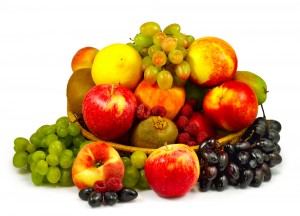 It has long been known that diet and diabetes are linked. There are certain types of food that can increase or decrease your risk of developing diabetes. According to a recent study, fruits such as apples, blueberries and grapes can be associated with a lower diabetes risk.
It has long been known that diet and diabetes are linked. There are certain types of food that can increase or decrease your risk of developing diabetes. According to a recent study, fruits such as apples, blueberries and grapes can be associated with a lower diabetes risk.
A large study composed of researchers from the US, UK and Singapore analyzed data from three studies- the Nurses’ Health Study (NHS 1984-2008), the Nurses’ Health Study II (NHS 1991-2009 and the Health Professionals Follow-Up Study (HPFS 1986-2008). There were 187,382 participants in the study composed of both men and women. The participants who initially had diabetes, cardiovascular disease or cancer were not included in the said study.
The researchers focused on the possible association between fruit consumption and diabetes risk. The researchers utilized food questionnaires to analyze the diet of the participants. The data was taken every four years, with consumption of ten fruits included in the study, namely, grapes and raisins, bananas, cantaloupe, apples and pears, peaches and apricots, prunes, oranges, blueberries, grapefruit, and strawberries. In addition, fruit juices made from apple, orange and grapefruit were also included in the study.
Over the course of the study, about 6.5 percent of the participants developed diabetes. The researchers discovered that those who consumed at least two servings of whole fruits such as apples or pears, blueberries, raisins and grapes each week reduced their type 2 diabetes risk by as much as 23 percent compared to participants who only consumed a serving of whole fruits per month.
The study also showed that the more the participants relied on fruit juice instead of real fruits, their risk for type 2 diabetes increased the more fruit juice they consume. Participants who consumed one to two servings of fruit juice daily increased their type to diabetes risk by 21 percent. Substituting whole fruits instead of fruit juice helped decrease the diabetes risk, with the exception of strawberries and cantaloupe.
According to the written statement written by the researchers, “Individual fruits might not be equally associated with risk of type 2 diabetes in that fruits have highly variable contents of fibre, antioxidants, other nutrients, and phytochemicals that jointly may influence the risk.”
The results of the study are available online in the British Medical Journal.
Source: ScienceDaily
Tags: Diabetes News, diabetes risk, fruit juice, type 2 diabetes, whole fruits